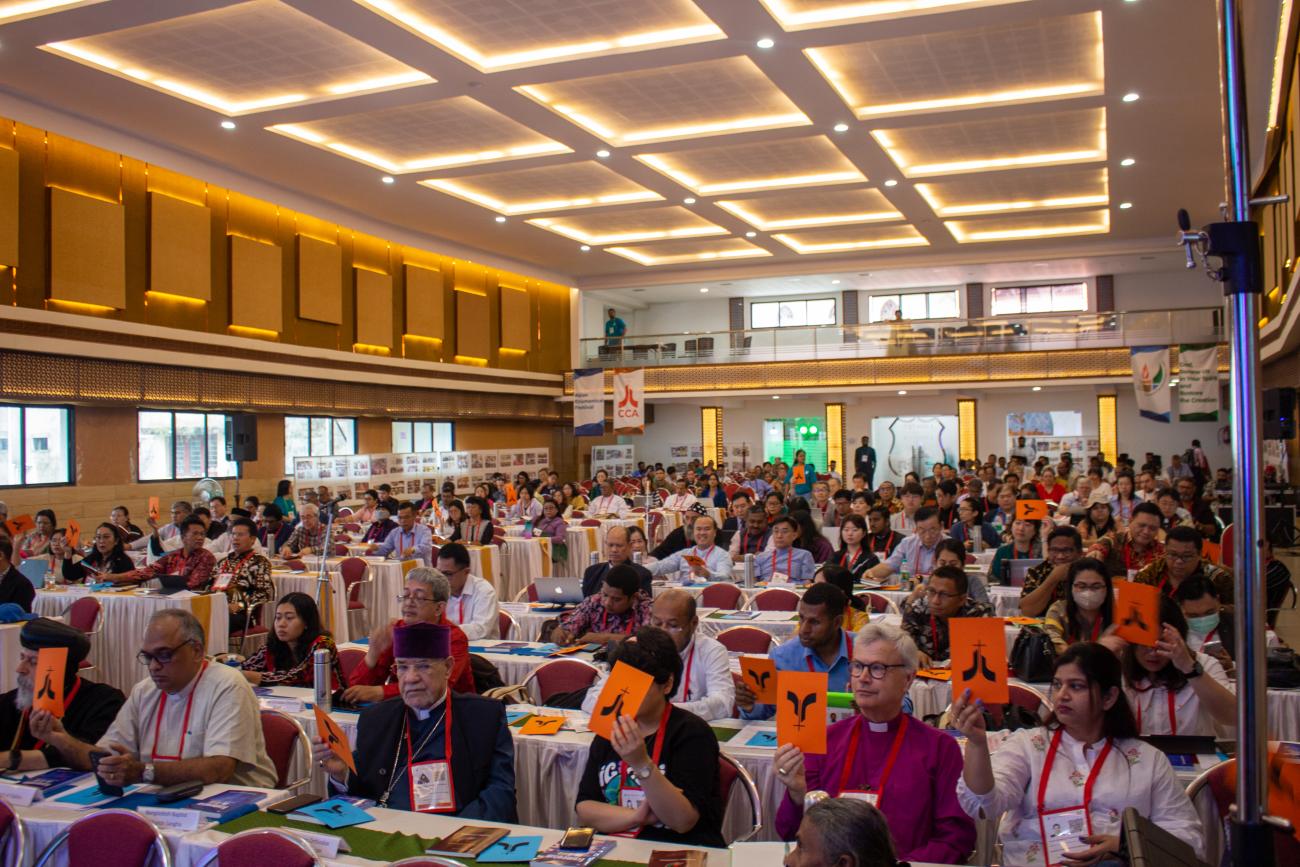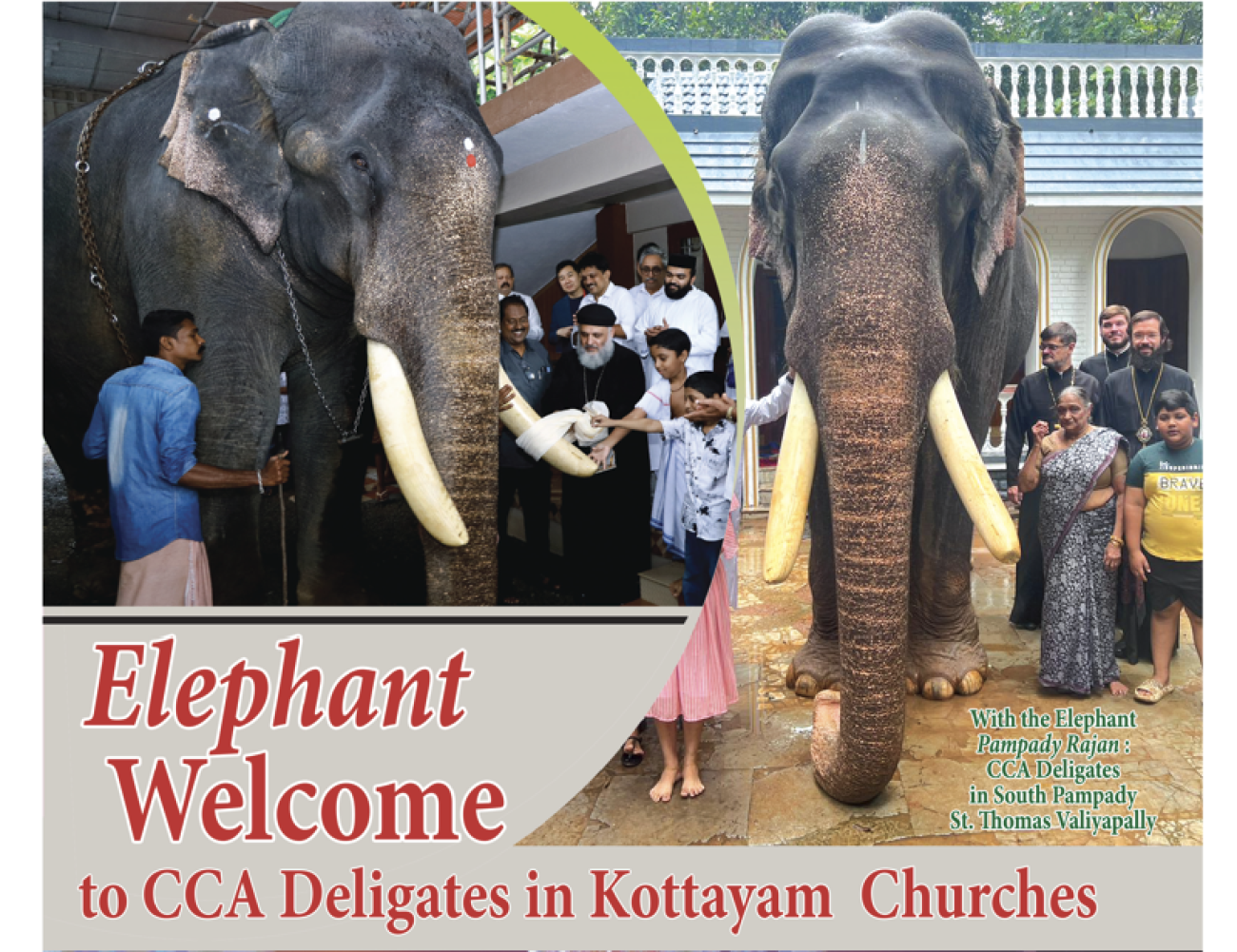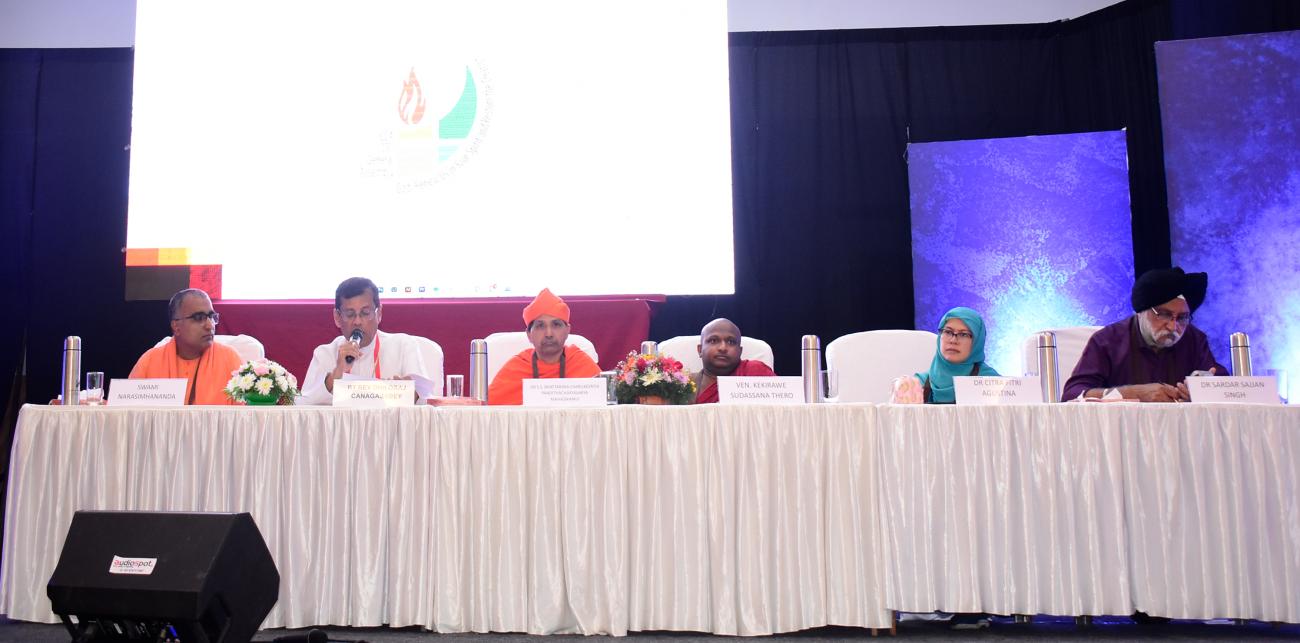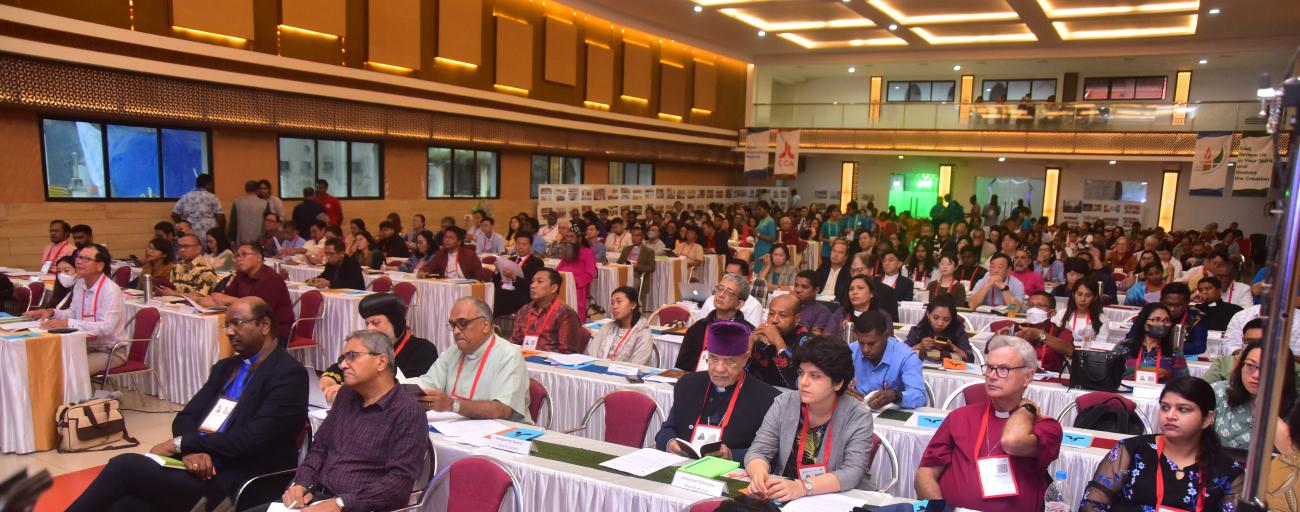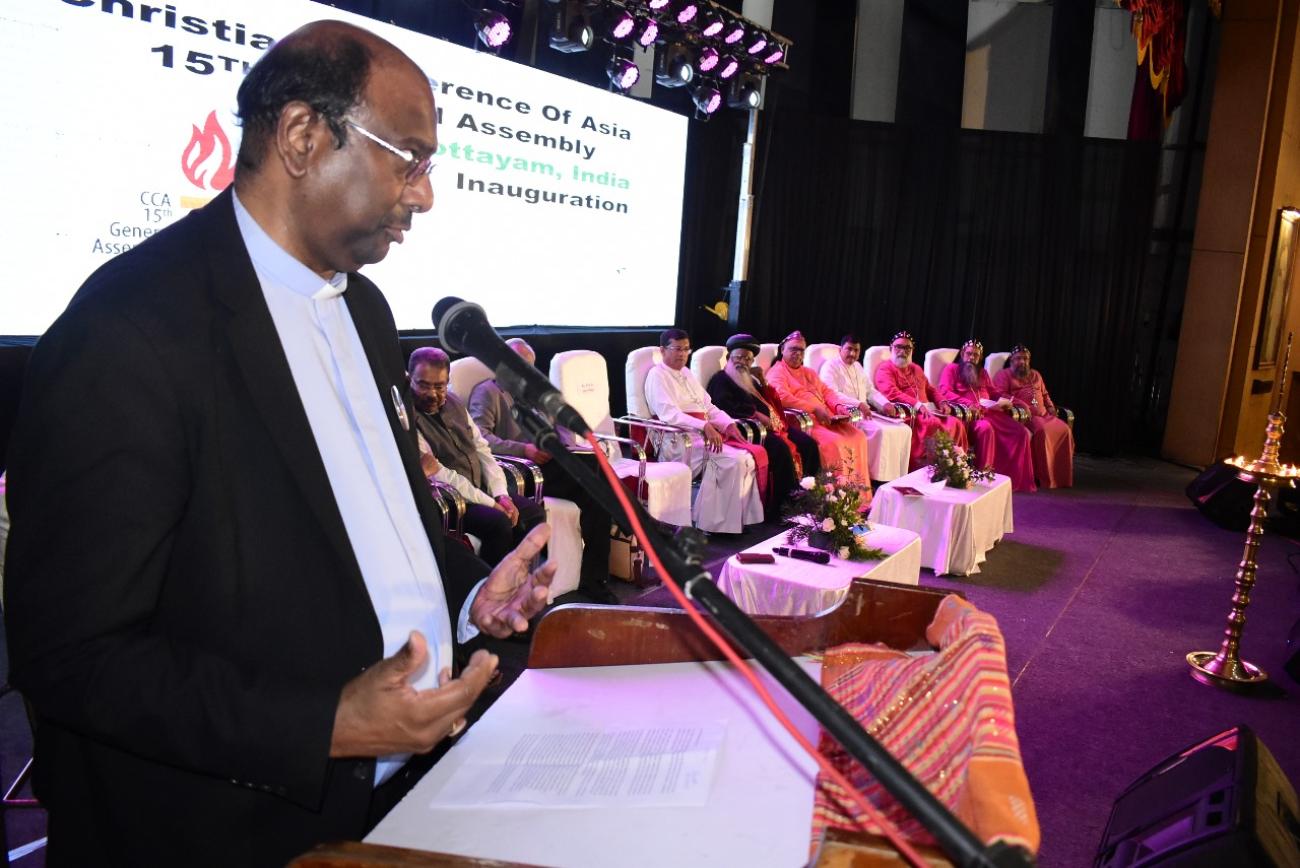Structure
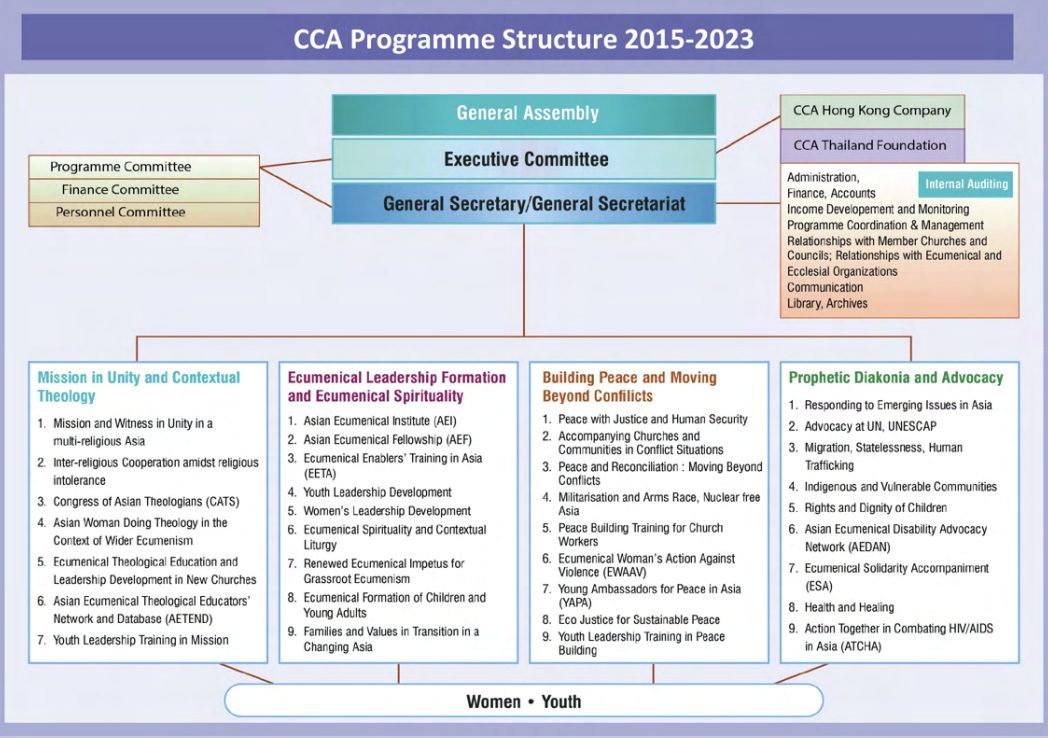
The General Assembly
The General Assembly is the supreme decision-making body of the CCA. The General Assembly normally meets every five years, or as convened by the Executive Committee.
The General Assembly celebrates the unity of the Church in Asia in worship, study, and action. It receives reports on the CCA's work and expresses the common vision of the churches for the direction and mission of the CCA. It also speaks out on public issues.
The Moderator, Vice Moderator, and the Treasurer, as well as the Executive Committee, are elected by the General Assembly.
The 15th General Assembly met from 27 September to 4 October 2023 in Kottayam, India. The Executive Committee and Officers for the next quinquennium were elected at the 15th General Assembly.
Officers
Moderator
Bishop Reuel Norman Marigza, United Church of Christ in the Philippines
Vice Moderator
Dr Ms Anna Alisha Mathew Simon, Council of Churches in Malaysia
Treasurer
Rev. Chan Kwok-Keung, Hong Kong Christian Council
General Secretary
Dr Mathews George Chunakara, Malankara Mar Thoma Syrian Church in India
The Executive Committee
The Executive Committee, comprising 17 members, is elected from the among the delegates at the General Assembly. It meets annually and is responsible for ensuring the implementation of the General Assembly's decisions as well as reviewing and supervising the CCA's programmes and budget. The term of the Executive Committee is till the end of the next regular meeting of the General Assembly.
Executive Committee Members
- Ms Hannah Manickyam Cassandra Mesa, Anglican Church in Aotearoa New Zealand and Polynesia
- Rev. John Charles Gilmore, National Council of Churches in Australia
- Rev. Jacklevyn Frits Manuputty, Communion of Churches in Indonesia
- Rev. Dethsacda Aphayamath, Lao Evangelical Church in the Democratic People’s Republic in Laos
- Ms Basanti Biswas, Methodist Church in India
- Rev. David Anirudha Das, National Council of Churches in Bangladesh
- Rev. David Nigel Perry Brohier, Church of Ceylon in Sri Lanka
- Archbishop Dikran Sebouh Sarkissian, Armenian Orthodox Church of Iran
- Ms Dymeas Sovy, Kampuchea Christian Council in Cambodia
- Rev. Levi Vasconcelos Pinto, Igreja Protestante iha Timor Lorosa’e in Timor Leste
- Rev. Prof. Dr Pradit Takerngrangsarit, Church of Christ in Thailand
- Ms Nant Ruth Shwe Sin Nyein Aye, Myanmar Council of Churches
- Mr Su-Hong Lim, Presbyterian Church in Taiwan
- Ms Tiurida Hutabarat, Protestant Christian Batak Church in Indonesia
- Dr Youngmi Cho, Presbyterian Church in Korea
- Rev. Zion Chung, Korean Christian Church in Japan
- Bishop Dr Kuriakose Mor Theophilose, Malankara Jacobite Syrian Orthodox Church in India (Programme Committee Chairperson)
The Programme Committee
The Programme Committee is appointed by the Executive Committee and normally meets three times between Assemblies. It is responsible for developing programmes in accordance with the mandate of the General Assembly and the guidelines provided by the Executive Committeee.
Staff
General Secretary
Dr Mathews George Chunakara
Programme Staff
Rev. Jung Eun Grace Moon
Dr Ronald Lalthanmawia
Arceli Pepito Bile
Klein Fausto Emperado
Chalvin Kores Tehuayo
Ruth Mathen
John Paul Devakumar
Sha Mgwe La Ah Tha Pa (Intern)
Hnin Wai Thi Aung (Intern)
Yu-Ting Chiu (Intern)
Finance, Accounts, and Administration
Friona Kallyani Sarker
Nathi Schumann (Jeab)
Netnapa Rattanajiamrangsri (Koi)
Arpa Yai-Chid (Ton)
Programme Structure
The programme structure of the CCA was revised and approved by the Executive Committee in 2015.
The core programmes of the CCA are Mission in Unity and Contextual Theology, Ecumenical Leadership Formation and Spirituality, Building Peace and Moving Beyond Conflicts, and Prophetic Diakonia and Advocacy. The Action Together to Combat HIV and AIDS in Asia (ATCHAA) is a special project.
Earlier, there were three key programme areas of the CCA, namely, Faith, Mission, and Unity (FMU), Ecumenical Formation, Gender Justice, and Youth Empowerment (EGY), and Justice, International Affairs and Development, and Service (JID).



